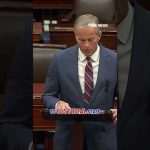The BBC has been exposed for editing President Trump’s January 6, 2021 remarks in a way that unmistakably altered their meaning and framed them as a direct call to violence. What was supposed to be a factual Panorama documentary instead spliced together comments made nearly an hour apart, creating a false impression that deserves contempt rather than excuses. This isn’t a mere production mistake — it’s a reckless manipulation of a narrative that millions rely on public broadcasters to report honestly.
Within days of the leak, the BBC admitted an “error of judgment,” pulled the documentary, and watched its top news leaders step down in disgrace, a fitting outcome for an organization that betrayed public trust. The resignations of the Director-General and the News Chief are not the end of the story; they’re proof that when the truth matters, media elites can be held to account. For British and American taxpayers alike, this scandal raises painful questions about how a state-funded broadcaster so clearly lost its editorial compass.
President Trump did not sit idly by while the BBC rewrote history; his legal team fired off a demand for a retraction, apology, and $1 billion in damages, calling the edits “defamatory” and “malicious.” Whether you support Trump or not, the principle is the same: powerful media institutions cannot be allowed to manufacture evidence and smear political opponents with impunity. This legal threat underscores the real costs of media misconduct and should make every free-speech defender uneasy about editorial lawlessness.
Leaked internal memos reveal how the program spliced separate remarks and even paired them with footage that did not chronologically follow the speech, a journalists’ sin that turned reporting into propaganda. The dossier and whistleblower accounts suggest this was not a simple cut-and-paste oversight but an editorial choice that fit a preconceived narrative. If a public broadcaster will doctor footage to score political points, what standards remain for the rest of the press? The answer appears grim unless there is a full reckoning.
Let’s be blunt: the BBC is financed by the public through a mandatory licence fee and owes citizens impartiality and truth, not spin and selective editing to influence foreign elections. When institutions funded by the people betray that covenant, reform isn’t optional — it’s necessary to preserve the integrity of journalism and the public square. Conservatives have warned for years that media institutions have become political actors rather than neutral informers; this episode is textbook evidence of that long-feared reality.
Americans should take this as a wake-up call: the same media apparatus that tried to shape narratives about our elections continues to operate with alarming arrogance. We must demand transparency, independent audits of editorial practices, and equal application of standards to outlets on every side of the political aisle. Trust is earned, and after deliberate misrepresentation, the BBC and its allies must rebuild that trust — or face lasting consequences at the ballot box and in the courts.
Patriots who value a free and fair press should not cower when institutions cross the line from reporting to rigging. Support the independent outlets that strive to tell the whole story, push for accountability where public money pays for news, and insist that no broadcaster, British or American, be allowed to weaponize footage to silence political opponents. The future of honest journalism depends on it.




